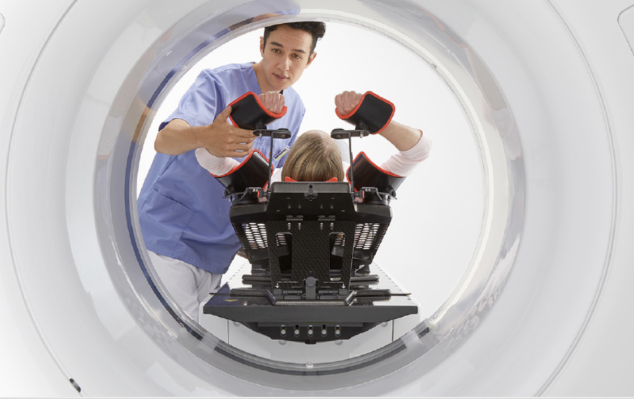
January 3, 2022 — The "Computed Tomography (CT) Scanners Devices and Equipment Global Market Report 2021: COVID-19 Impact and Recovery to 2030" report has been added to ResearchAndMarkets.com's offering.
The global computed tomography (CT) scanners devices and equipment market is expected to decline from $7.97 billion in 2020 to $7.86 billion in 2021 at a compound annual growth rate (CAGR) of -1.4%. The decline is mainly due to deferment of various treatments due to the outbreak of COVID-19 that has led to fall in demand for the equipment. The market is expected to reach $9.26 billion in 2025 at a CAGR of 4.2%.
Major players in the computed tomography (CT) scanners devices and equipment market are GE Healthcare, Koninklijke Philips N.V., Hitachi Ltd., Siemens, Canon Medical Systems Corporation, Neusoft Medical Systems, Hitachi Healthcare America, Neurologica, Samsung Electronics, and Shimadzu Corp.
Effects of radiation and increasing health concerns hinders the computed tomography (CT) scanner devices and equipment market growth. Diagnostic imaging procedures use CT scanner devices that release electromagnetic waves or particles called 'ionizing radiation'. This radiation coming from manmade sources such as CT scans, nuclear medicine scans and PET scans carry major health hazards and risks. Low doses can cause cancer in the long run.
Cancer is a leading cause of death worldwide, accounting for an estimated 9.6 million deaths in 2018. When doses exceed certain levels it causes skin burns and acute radiation syndrome. According to a global survey conducted by National Council on Radiation Protection and Measurements (NCRP), on radiation overexposure accidents, 2390 people were over exposed to radiation, out of which 190 died.
In 2016, a regulation on radiation protection-computed tomography was made by Department OF Health (DOH), Washington, which was effective from July 2017. According to the regulation, CT scan device manufacturers are not allowed to make protocol changes or other software changes or any upgrades impacting the radiation dose or image quality.
They need approval of the lead interpreting CT physician, technologist, or the medical physicist to allow appropriate changes. If any uncertainty in the device that emit ionizing radiation which are supposed to comply with the given performance standards related to machine organization and other important metrics. There can be a product recall, medical alert or any safety notice sent to the manufacturer.
Therefore, the manufacturers of medical imaging devices should reduce their ionizing radiation levels effectively in order to minimize the costs, and reduce timelines for approval. The stringent regulations like these might affect the computed tomography scanner devices and equipment market.
Rising prevalence of cancer and cardiovascular diseases are driving the computed tomography (CT) scanners devices and equipment market. According to the Centers for Disease Control and Prevention in the USA, the number of new cancer cases will go up by 24% in men and 21% in women by 2020 than in 2010.
The rising need for early stage detection and prevention of these life-threatening diseases, increase the demand for proper diagnostics which poses as an opportunity for CT scan manufacturers. For instance, according to the American Heart Association; by 2035, 45.1% of the US population is projected to have some form of CVD. Total costs of CVD are expected to reach $1.1 trillion in 2035, with direct medical costs projected to reach $748.7 billion and indirect costs estimated to reach $368 billion.
Companies in the industry are integrating medical imaging with healthcare IT technology by providing digital access to improve patient safety, enhance healthcare facility and save patient time and money. The data from CT scans are being integrated with an image processing and communicating system such as picture archiving and communication system (PACS) that brings CT images from multiple systems into one interface.
This enables radiologists to securely store, digitally transmit electronic images and clinically-relevant reports, and make use of a comprehensive database of images in order to give an accurate diagnosis. These are increasingly incorporated and used for clinical analysis, diagnosis and treatment in departments such as radiology, nuclear medicine imaging, cardiology, pathology, oncology and dermatology.
For more information: www.researchandmarkets.com


 August 09, 2024
August 09, 2024 








